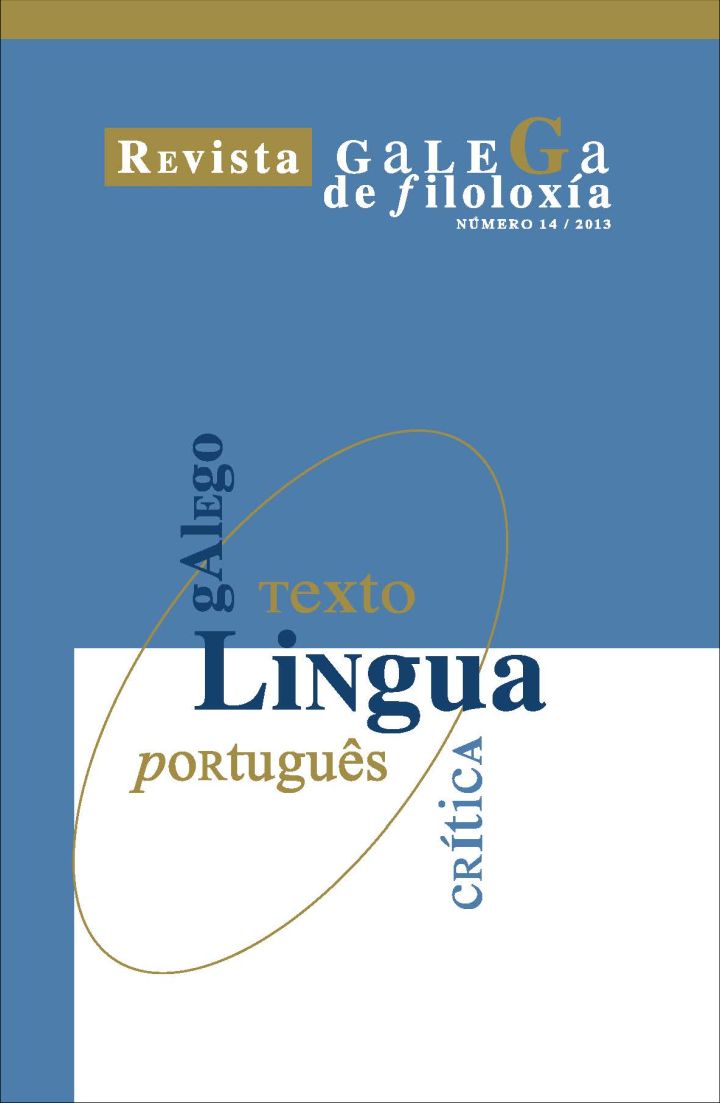Contribution to the study of the discourse marker 'claro' in European Portuguese
Main Article Content
Abstract
The aim of this paper is the characterization of the uses of the discourse marker ‘claro’ in contemporary European Portuguese, based on empirical data collected from the Reference Corpus of Contemporary Portuguese. Two contexts of use were found: (i) reactive interventions, in dialogue, where the marker may function as an emphatic answer to questions or requests, as an expression of agreement or as a filler; (ii) interventions of a single participant, where the marker behaves as an epistemic modal operator. In the last section, a hypothesis on the grammaticalization path of the marker is put forward
Keywords:
Downloads
Metrics
Article Details
References
Alonso-Cortés, A. (1999) “Las construcciones exclamativas. La interjection y las expressions vocativas”, en Bosque, I. / Demonte, V. (orgs.), Gramática Descriptiva de la Lengua Española, vol. 3, 3993-4050 (Madrid: Espasa).
Brito, A. M. / Duarte, I. / Matos, G. (2003) “Estrutura da frase simples e tipos de frases”, en Mateus, M.H.M. et al., Gramática da Língua Portuguesa (Lisboa: Caminho), pp. 433-506.
Briz, A. (2006) “Para un análisis semántico, pragmático y sociopragmático de la cortesía atenuadora en España y América”, en Lingüística Española Actual, XXVIII/2, pp. 1-41.
Brown, P. / Levinson, S. (1987): Politeness. Some Universals in Language Use (Cambridge: Cambridge University Press).
Faria, I. H. (2003): “O uso da linguagem”, en Mateus, M. H. M. et al., Gramática da Língua Portuguesa, 57-84 (Lisboa: Caminho Gutiérrez-Rexach, J. / Andueza, P. (2011) “Degree restrictions in Spanish exclamatives”, en Ortiz-López, L. A. (ed.): Selected Proceedings of the Hispania Linguistics Simposium (Somerville, MA: Cascadilla Proceedings Project).
Levinson, S. (1983) Pragmatics (Cambridge: Cambridge University Press).
Martins, A. M. (2006): “Emphatic affirmation and polarity: contrasting European Portuguese with Brazilian Portuguese, Spanish, Catalan and Galician”, en Doetjes, J. / Gonzalez, P. (eds.), Romance Languages and Linguistic Theory 2004, 197-223 (Amsterdam: John Benjamins).
Lima, J. P. de (2002): “Grammaticalization, subjectivation and the origin of phatic markers”, en Wischer, I. / Gabriele Diewald, G. (eds.), New Reflections on Grammaticalization, 363-378 (Amsterdam: John Benjamins).
Pons Bordería, S. (1998): Conexión y conectores: estudio de su relación en el registro informal de la lengua. Anexo XXVII de Cuadernos de Filología (València: Universitat de València).
Pons Bordería, S. (2012) “Claro. Una palabra sobre los apellidos de la sintaxis”, en Bustos Tovar et al. (eds.), Homenaje a Antonio Narbona, 375-389 (Sevilla: Servicio de Publicaciones de la Universidad de Sevilla).
Rett, J. (2008): “Exclamatives, degrees and speech acts”, Linguistics and Philosophy 34/5, 411-442.
Traugott, E. (1997): “The role of the development of discourse markers in a theory of grammaticalization”. Disponível em http://www.standford.edu/~traugott/papers/discourse.pdf [Acedido em 25.4.2013].
Traugott, E. C. / Dasher, R. B. (2002): Regularity in Semantic Change (Cambridge: Cambridge University Press).



